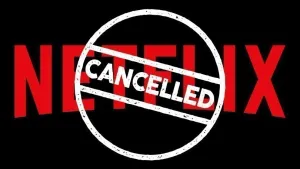I'm a massive advocate for Right to Repair. In brief, it's a consumer movement centered around the idea that when you pay for a product, you own it and the manufacturer should not artificially restrict your ability to repair or modify it. Increasingly, more and more manufacturers are preventing self-repair or third-party repair by locking down features unless their people fix them, not making parts and schematics available or in some cases, just barring repair altogether. Apple led the charge on this but as so often happens, many competitors saw them get away with it because fans and the press always give Apple a pass and they quickly followed suit. Phones, computers, appliances, farm equipment, accessibility tools and now even cars are starting to see this happen and efforts to legislate consumer fairness have been glacial at best since business owns government.
Something I do to give back is take in old hardware from clients at my day job that is still useful, refurbish it and donate it to local charities that give them to underprivileged people or use them in education. What isn't useful to a business can still provide years of value to someone else while saving things from ending up in e-waste piles or landfills. As such, I share a lot of goals in common with Right to Repair.
There are some growing grass roots organizations that are trying to be the standard bearers for this movement, informing consumers what their rights are and trying to lobby governments in their own way to enshrine those rights in law. While progress has been slow, I hold hope that they are able to make headway, especially as the geritocracy currently running most governments starts to get replaced with a new generation.
However, two two prominent organizations known as The Restart Project and Right to Repair Europe recently took a public stance on an issue that I think was a poor one and ultimately, will harm the movement's goals more than help. They took the position that by eliminating support for the Windows 10 operating system on October 14th, 2025--which means that while it will still work, it will no longer get security updates and is unsafe to use connected to the Internet–that Microsoft is rendering over 400 million devices that can't upgrade to Windows 11 obsolete and is effectively condemning otherwise fine hardware to landfills. This is a very bad take and unreasonable ask and while I'm not in the habit of defending multi-trillion dollar companies who regularly do stupid, anti-consumer things, I think too much is being asked here.
Windows 10 is now over a decade old and its end of life date has been telegraphed for years and it's been supported for far longer than your average MacOS release. It's definitely no surprise to anyone who has paid attention. While I think that it's still a very solid OS, it has long stopped being sold and continuing to support it indefinitely because it was popular is simply not reasonable. No matter how big the company who made it, you can't ask them to keep it updated well past when it's stopped making them money. There is a lot of legit debate about whether Windows 11 should be restricted to certain eras of hardware given that you can hack around that and it runs fine when you do, but that's a different issue. What these groups are claiming is that without continued Windows 10 support, all of these devices will be rendered useless and will end up having to be disposed of instead of reused. This is patently false and more to the point, absurd.
Have none of these people ever heard of Linux? A great many distributions will run exceptionally well on old hardware, even things considered potato grade by today's standards. Many provide modern user experiences for just about any general computing use case and are quite stable and automatically keep themselves updates like Windows. Hell, there's even distributions specifically designed to feel as much like Windows as possible to make it easy to switch. For many years, I would say asking people who only knew Windows or Mac to endure the endless headache that was desktop Linux was a fool's errand. Things have come a long way since then and for people who just want to do common tasks (i.e. most people), I generally have no problem suggesting it as an option. I was putting Linux Mint on PCs I got to donate that couldn't upgrade to Windows 11, though I'm now going to try out the others as well. Did I mention all of these are completely free?
Simply by virtue of these alternatives existing, the hardware these organizations claim to be obsolete is not so. As someone who happily daily drives Windows 11, you don't need Windows to do most general purpose computing reliably, easily and safely and Linux can make even decade old hardware still feel responsive and efficient. Especially when we're talking about charities using this hardware for the underprivileged, a system that works but maybe doesn't perform like something state of the art is miles better than just relegating it to the scrap heap. Acting like Microsoft is some kind of villain for ending support for decade old software is both unreasonable and dare I say it, comes across as rather entitled. There are free alternatives available that will do the job just as well and require no more effort to setup and use than Windows itself does. If anything, I would think these groups would be taking this opportunity to focus more on promoting open source software and showing why you don't have to rely on Microsoft or Apple for a solid computing experience. They're not only picking the wrong battle here, they're hurting their goals with it.
I think these groups are awesome and doing very important work that I support wholeheartedly. Hell, while researching this post, I discovered that one of their partner organizations near me is offering a DIY soldering course that I just signed up for! However, a bad take is a bad take and I think this needed to be called out. I want to see this movement continue to gain ground and take back the rights that Big Tech continues to siphon from consumers. But the way to do that is not to make unreasonable demands from incumbent players, but to use and showcase the alternatives. Taking market share away from Windows will speak far more to Microsoft than making false claims about obsolescence because they won't support outdated software indefinitely.




